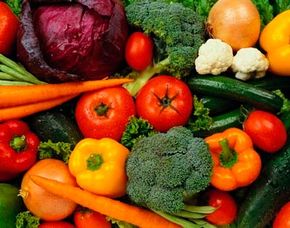In traditional Chinese medicine, the body and mind are inseparable. Composed of a number of vital substances -- qi (pronounced chee), blood, essence, and body fluids -- the body and mind express their qualities through the functions of the internal organs.
Ranging from tangible, visible substances to subtle, intangible forces, these basic elements of the body and mind are responsible for all aspects of human life -- physical, mental, emotional, and spiritual.
Advertisement
Their intimate involvement in human activity makes them an essential part of physiology, and recognition and understanding of
them are an essential part of diagnosis.
Defining "Qi"
Defining "Qi"
Although qi plays a central role in traditional Chinese medicine, it is extremely difficult to define. It is best to understand it in terms of its functions and activities, where it is more readily perceived.
Situated somewhere between matter and energy, qi has the qualities of both. It has substance without structure, and it possesses energy qualities but can't be measured. It is the fundamental power underlying all the activities of nature as well as the vital life force of the human body.
For example, the force of a thunderstorm can be understood in terms of its qi: The power of qi can be observed in the fallen trees and buildings in the storm's aftermath.
Similarly, the strength of the digestive organs can be determined in relation to their qi by evaluating the appetite, color of the tongue, strength of the pulse, and the body's response to nutrition.
The Meridians
The flow of qi through the body occurs within a closed system of channels, or meridians. There are 12 major meridians, and they correspond to the 12 organ systems: six yin organs and six yang organs. Traditional organ theory pairs yin and yang organs according to their structure and function and the interconnection of their meridians.
In addition, eight extra meridians are interconnected with all the channels. This network of meridians allows the qi, or life force, to reach all the tissues and organs, providing nourishment, warmth, and energy to all parts of the body.
The flow of qi travels from channel to channel, passing through all the meridians every 24 hours. For example, the flow of qi in the heart meridian is strongest between the hours of 11 a.m. and 1 p.m. From there, the qi flows into the meridian of the small intestine, staying there until 3 p.m., at which time the flow passes into the bladder meridian.
In this way, qi passes through all the major meridians and their corresponding organs every day. Although the meridians are deep within the body, points along them are accessible from the surface of the skin.
It is the manipulation of these points by means of pressure, heat, or needles that is the basis for acupressure, moxibustion, and acupuncture, respectively.
The qi that flows through the meridians can be manipulated at the acupuncture points, bringing healing energy to organs that need it and moving energy away from areas that are impaired due to stagnation of qi.
Qi works in conjunction with the other vital substances to keep your body healthy. See the next section of this article to learn about the functions of qi.
For more about traditional Chinese medicine, treatments, cures, beliefs, and other interesting topics, see:
- How Traditional Chinese Medicine Works
- How to Treat Common Ailments with Traditional Chinese Medicine
- Traditional Chinese Medicine for Coughs, Colds, Flu, and Allergies
- Traditional Chinese Medicine for the Digestive System
- Traditional Chinese Medicine for Pain Relief
- Traditional Chinese Medicine for Overall Health
Advertisement


